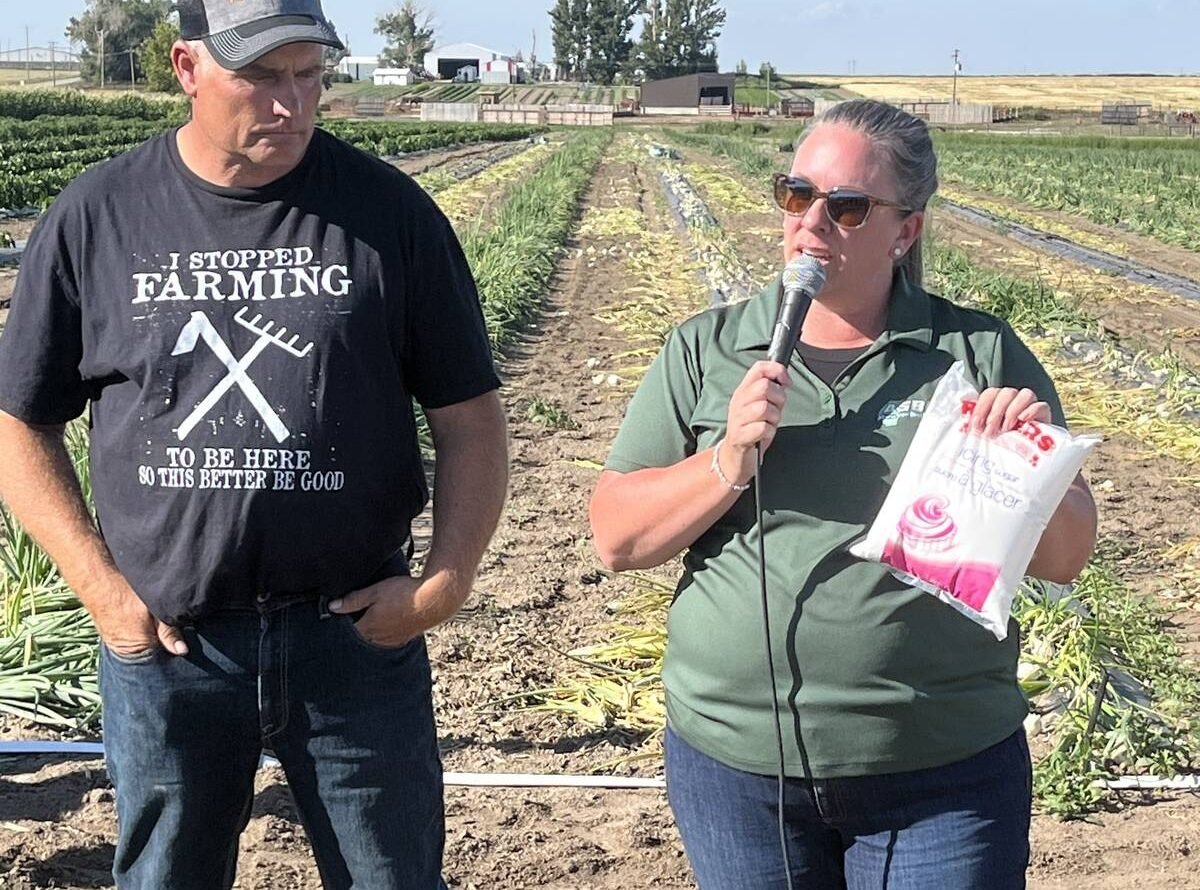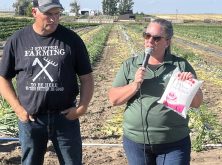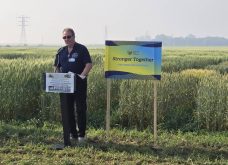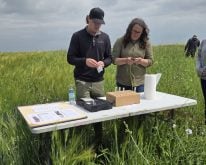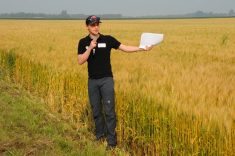The Organic Crop Improvement Association’s Research and Education Board awarded its annual postgraduate scholarship to Iris Vaisman of the University of Manitoba at its annual general meeting in February.
Vaisman’s research investigates ways to reduce tillage in organic
agriculture on the Canadian Prairies. Faced with an abundance of high
quality candidates this year, the board awarded four additional student
prizes.
The association is an international not-for-profit
membership organization dedicated to supporting organic research that
farmers want, facilitating professional development for organic farmers
and building connections for organic research and education.
This
is the sixth year it has awarded a post graduate scholarship.
Vaisman
works with Martin Entz at the U of M and has written about her research
in this column. She has focused on assessing the roller crimper as a
way to reduce tillage in terminating green manures.
Green manures
offer tremendous soil benefits, such as supplying nitrogen, feeding
soil organisms and reducing weed levels.
In organic systems, it
has been common practice to disc or cultivate green manures to
incorporate them into the soil at bud or flowering. This need for
incorporation has been a limitation to developing an organic no-till
system.
The roller crimper was developed by farmers in South
America and popularized as a key component of Rodale’s No-till organic
system. It crimps the stems of green manures and rolls them flat. The
residue can suppress weeds and reduce evaporation losses from the soil
surface.
The technology is being tested on the Canadian Prairies
by the U of M and University of Saskatchewan researchers.
Further
work will be required to adapt this technique to our shorter season and
drier climate.
Vaisman is comparing different rolling treatments,
with and without additional tillage for termination of a pea and oat
green manure. She is studying soil and weed measurements as well as
wheat yields in the year following the green manure. She is also
comparing chickling vetch, hairy vetch and Indianhead lentil as green
manure in roller and tillage treatments.
Vaisman is working on
organic research plots near Carman, Man., and Oxbow, Sask. I look
forward to hearing more about her research.
The board felt
compelled to honour other scholarship candidates.
“The quality of
candidates this year was just stellar,” board chair Martin Meinert said
at the association’s annual general meeting.
“We’ve seen a
tremendous step forward in research in the last few years. These
candidates were really close. We are proud to recognize all of them.”
The
other winners are Nicole Ward from Louisiana State University, Clare
Sullivan from the U of S, Kathleen Hilimire from the University of
California and Suzanne O’Connell from North Carolina State University.
Ward
studies the organism that causes soybean rust, which has devastated
soybean yields in warmer climates and recently moved into the United
States. She identified a fungus associated with soybean rust, determined
that it was a parasite of the rust organism and is testing its
potential as a biological control for this invasive disease.
Sullivan
is also studying how to reduce tillage of annual green manures using
the roller crimper.
Using 4010 forage pea and small seeded
fababeans as green manures, she is looking at the timing of termination,
nitrogen and phosphorus cycling and moisture balance of residues.
Hilimire
is studying ways to improve soil quality using poultry. She is using a
system that incorporates free-range poultry on temporary grass-legume
pasture to reduce tillage, improve fertility and bring value to the
soil-building phase of the rotation.
O’Connell is studying
decomposition of green manures and the role of soil microbes in nutrient
cycling. Her goal is to find green manure systems for warm humid
environments that release nutrients in a timely way for following cash
crops.
The calibre of these scholars and the quality of their
research bodes well for the future of organics. The strong emphasis on
understanding and using biological processes and reducing potentially
harmful practices suggests that organics will continue to move forward
as an environmentally friendly system.


